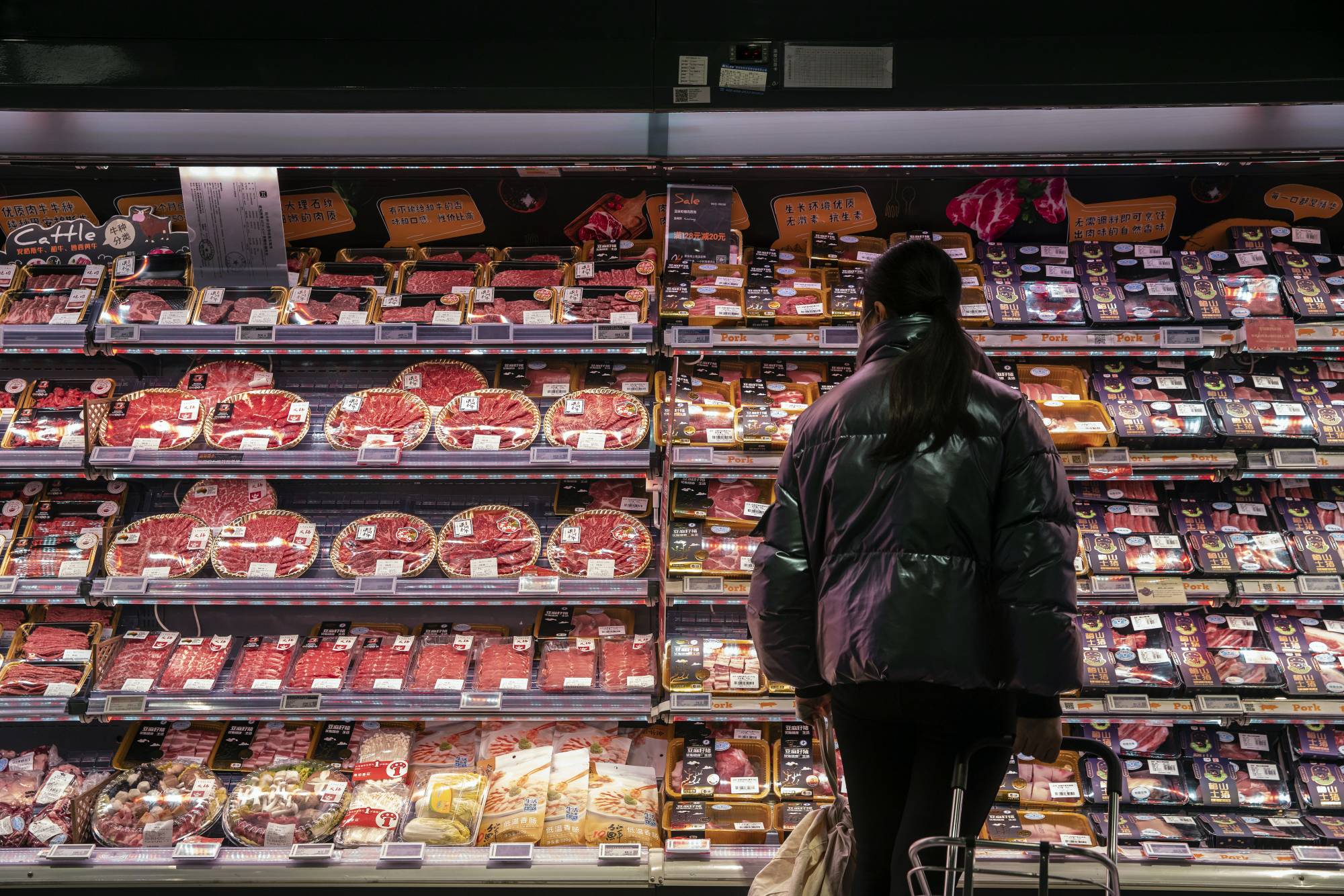At an upscale supermarket west of Beijing, a box of disposable gloves stands in front of a glass counter selling Australian beef. Next to it is a sign saying: "Please buy this with peace of mind.”
"All the imported meats here have undergone nucleic acid testing. Consumers need not worry,” promises Li Xingzhen, a manager at Ole supermarket, which imports about 70% of its groceries. Her pledge offers a look at the new challenges facing retailers as many Chinese shoppers grow reluctant to buy overseas food products after COVID-19 infections were reported among people handling such items.
Seafood imports by China tumbled 12.5% last year, including a plunge of 32% in December from a year ago. While overall purchases of meat have remained robust amid a domestic shortage, the pressure on the global food industry is only poised to rise: Rabobank Group forecasts that China’s meat imports could plunge as much as 30% this year from a record in 2020.



